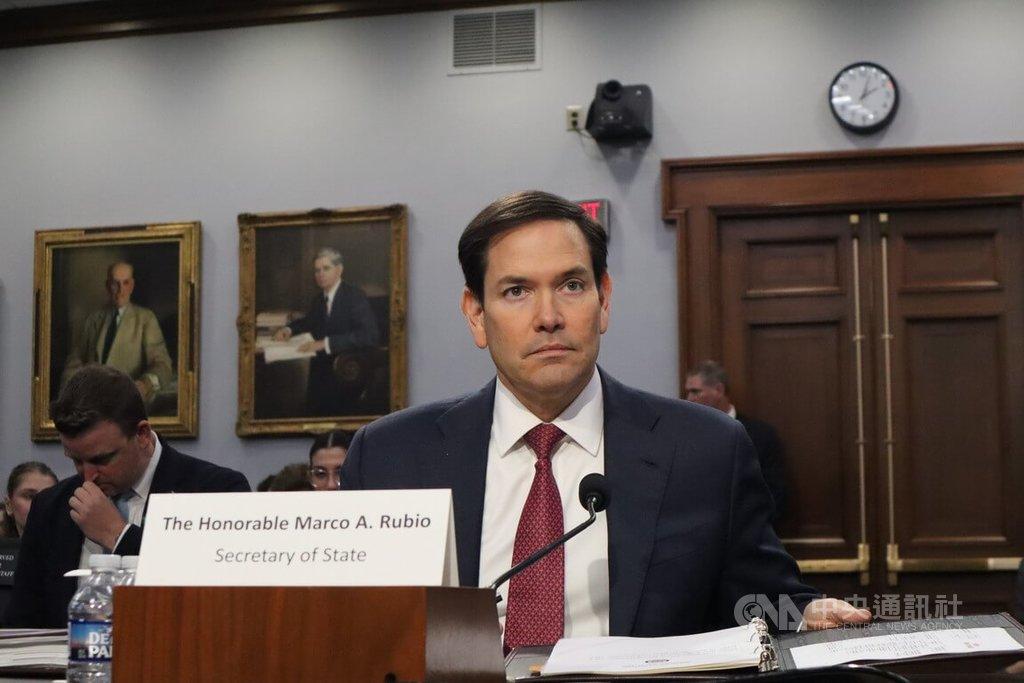US Congressmen Rick Scott and Scott Perry yesterday introduced the “Taiwan PLUS Act” to strengthen US-Taiwan defense cooperation and expedite weapons delivery in the face of Chinese Communist Party (CCP) intimidation.
The act would reduce the review process for requests for critical weapons from 30 days to 15 days, and boost the financial thresholds to the same levels as “NATO Plus” partners.
The current threshold for requesting major defense equipment is US$14 million, defense services US$50 million and construction support US$200 million. These would be increased to US$25 million, US$100 million, and US$300 million, respectively, a news release by bill sponsor Congressman Scott Perry said.

Photo: CNA
It would elevate Taiwan to the same status as Australia, Israel and Japan, it said.
“The Taiwan PLUS Act will cut red tape and make it faster and easier for Taiwan to purchase the weapons it needs from the US to defend itself should Communist China invade,” Senator Rick Scott said, a co-sponsor of the bill.
Taiwan was the top Foreign Military Sales customer in the fiscal year 2020 and has been Japan’s third-largest buyer since 1950, the news release said.
“As the CCP continues to escalate its hostile posture, the Taiwan PLUS Act sends a clear and unambiguous message: America stands with Taiwan, and will ensure our partners have the means to protect peace, freedom, and security in the Indo-Pacific,” it added.
The act must now pass both the US House and the Senate before being signed into law by the US President.
In other news, US Secretary of State Marco Rubio yesterday attended a full-committee hearing by the House Foreign Affairs Committee titled “FY26 State Department Posture: Protecting American Interests.”
Reforms to the Foreign Military Sales program were needed to address delays in sales and financing deals, he said.
In a Senate hearing on Tuesday, Rubio said, “Deterrence [against the CCP] obviously begins with Taiwan’s own self-defense capabilities,” adding that deterrence is then continued by having a “credible regional deterrent, not just the [US] but Japan and other allied countries around the world.”
“We have to understand that every time there’s a conflict in the Middle East or a conflict in Europe... we have to dedicate resources and time.... that we’re not dedicating to the Indo-Pacific,” he said.

The first two F-16V Bock 70 jets purchased from the US are expected to arrive in Taiwan around Double Ten National Day, which is on Oct. 10, a military source said yesterday. Of the 66 F-16V Block 70 jets purchased from the US, the first completed production in March, the source said, adding that since then three jets have been produced per month. Although there were reports of engine defects, the issue has been resolved, they said. After the jets arrive in Taiwan, they must first pass testing by the air force before they would officially become Taiwan’s property, they said. The air force

The Coast Guard Administration (CGA) yesterday said it had deployed patrol vessels to expel a China Coast Guard ship and a Chinese fishing boat near Pratas Island (Dongsha Island, 東沙群島) in the South China Sea. The China Coast Guard vessel was 28 nautical miles (52km) northeast of Pratas at 6:15am on Thursday, approaching the island’s restricted waters, which extend 24 nautical miles from its shoreline, the CGA’s Dongsha-Nansha Branch said in a statement. The Tainan, a 2,000-tonne cutter, was deployed by the CGA to shadow the Chinese ship, which left the area at 2:39pm on Friday, the statement said. At 6:31pm on Friday,

The Chinese People’s Liberation Army Navy’s (PLAN) third aircraft carrier, the Fujian, would pose a steep challenge to Taiwan’s ability to defend itself against a full-scale invasion, a defense expert said yesterday. Institute of National Defense and Security Research analyst Chieh Chung (揭仲) made the comment hours after the PLAN confirmed the carrier recently passed through the Taiwan Strait to conduct “scientific research tests and training missions” in the South China Sea. China has two carriers in operation — the Liaoning and the Shandong — with the Fujian undergoing sea trials. Although the PLAN needs time to train the Fujian’s air wing and

STRIKE: Some travel agencies in Taiwan said that they were aware of the situation in South Korea, and that group tours to the country were proceeding as planned A planned strike by airport personnel in South Korea has not affected group tours to the country from Taiwan, travel agencies said yesterday. They added that they were closely monitoring the situation. Personnel at 15 airports, including Seoul’s Incheon and Gimpo airports, are to go on strike. They announced at a news conference on Tuesday that the strike would begin on Friday next week and continue until the Mid-Autumn Festival next month. Some travel agencies in Taiwan, including Cola Tour, Lion Travel, SET Tour and ezTravel, said that they were aware of the situation in South Korea, and that group